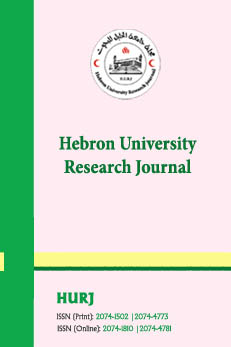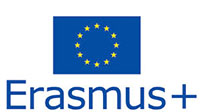SDG 6: Clean Water and Sanitation
Hebron University’s Endeavors in Pursuit of SDG 6: Clean Water and Sanitation
SDG 6 is focused on providing everyone with access to clean water and sanitation systems and managing them sustainably. Public health, environmental sustainability, and general well-being all depend on having access to clean water and adequate sanitation. Through numerous efforts and programs targeted at enhancing water quality, advancing sustainable water management, and encouraging sanitation practices, Hebron University, located in Palestine, is committed to helping to realize SDG 6. Hebron University is aware of how important good water management is to reaching SDG 6. The institution participates in research, instruction, and community outreach initiatives that highlight the significance of water conservation, effective use, and resource protection. The institution helps to protect this priceless resource for future generations by instructing students and community members in sustainable water management methods.
Workshops, seminars, and awareness campaigns are organized by Hebron University to inform students and surrounding communities about the value of clean water and sanitary conditions. These programs seek to increase public awareness of the importance of conserving water, good sanitation habits, and the part that each individual plays in ensuring that everyone has access to clean water.
To address collectively water-related concerns and advance sustainable water management techniques, the university works with governmental authorities, non-governmental groups, and other academic institutions. These collaborations make it possible to share information, resources, and expertise, promoting the achievement of SDG 6 in a comprehensive manner.
At Hebron University, we recognize the urgent need to address climate change and promote sustainability in all aspects of our operations. We are committed to being responsible stewards of the environment, reducing our carbon footprint, and fostering a sustainable future. Hebron University aims to lead by example, positively impact the environment, and inspire others to contribute to a sustainable future. This outlines our commitment to sustainability and our strategies for mitigating climate change.
Agricultural Center for Training & Extension
Sources of support for the center:
- The budget of Hebron University.
- The grants of the projects.
- Contributions from the agricultural and veterinary companies and feed and food processing private companies.
Mission of the center:
It is the contribution in raising the economic and living standard of the agricultural society by increasing the agricultural and environmental awareness of the Palestinian farmers.
College of Agriculture implements training course in environmental agriculture
The College of Agriculture at Hebron University, in cooperation with the Land Foundation for Agricultural Development and in partnership with the Agricultural Vocational Training Center "Al-Masdar" and the Municipal Seed Bank, implemented a training course in the field of environmental agriculture. The course targeted at least 40 participants from the College of Agriculture. This training aims to contribute to the development of the agricultural sector and achieve the vision of food sovereignty .
Green universities in Palestine
Palestinian universities began to link the scientific theories that are taught in their academic courses and programs with the practical reality, where the Palestinian universities, with the support of local and international institutions, began to exploit the alternative energy from the sun to generate electricity using the technology of photovoltaic panels to produce electrical energy, which helps in saving electricity consumption that occupies all the buildings, halls and centers of universities Energy to provide in order to provide the appropriate educational atmosphere for its students.
Lighting Hebron University with solar energy at a cost of one million two hundred thousand dollars
Lighting Hebron University with solar energy at a cost of one million two hundred thousand dollars
Natural Resources & Sustainable Management
College Of Graduate Studies Master's Programs
Natural Agricultural Resources and its Sustainable Management
Nutrition & Food Technology Department
Nutrition and Food Technology
The College of Science and Technology participates in the revival of the Arab Environment Day
The College of Science and Technology participated in environmental activities to commemorate the Arab Environment Day, in coordination with the Environment Quality Authority, which included an environmental path in the midst of nature and historical monuments in the Al-Makhrour and Battir regions in Bethlehem Governorate, to learn about the history of the two regions and their most important features.
These areas are characterized by biodiversity, as they are home to the mountain deer and the Palestinian mole, in addition to the great diversity in the vegetation of oak, pine, elm, carob, hawthorn, olive, and wild flowers such as daffodils and saffron.
Hebron University environmental conference for school students
Hebron University The Faculty of Agriculture at the university organized an environmental conference for school students in the presence of a large group of governmental and non-governmental schools, in addition to a number of representatives of governmental and non-governmental institutions, and with the participation of 30 schools from the Hebron and Bethlehem governorates to discuss several axes, the most important of which are water, waste recycling and environmental culture.
Students from the Hebron University Faculty of Science and Technology took part in an environmental hike to the Wadi Al-Quff Reserve and the Union of Agricultural Work Committees' Seeds and Germplasm Bank.
Together with the Environmental Quality Authority and the Ministry of Agriculture, the College of Science and Technology, the Union of Agricultural Work Committees, and this event were responsible for organizing it.
A group of instructors from the environmental and agricultural sectors welcomed the students, and many talks on the work of the Union of Agricultural Work Committees and the prospects for exploiting germplasm stored in the seed bank at the Union's headquarters were provided.
Hebron University holds a workshop entitled Clean Environmental Energy Systems
A workshop titled Clean Environmental Energy Systems was organized by the Faculty of Science and Technology in collaboration with the Renewable Energy Unit at Hebron University in front of university faculty members, the coordinator of the Global Environment Facility, the environmental media representative from Radio Elm, and a sizable number of university students.
Initially, Dr. Nabil Al-Hasasneh, Dean of the College of Science and Technology, welcomed Mrs. Nadia Al-Khodari, Coordinator of the Global Environment Facility (UNDP- SGP-GEF), and then he reviewed the university's directions towards increasing environmental awareness and contributing to solving environmental problems and applications towards a green campus. Finally, he discussed a specialization in environmental science and technology that is proposed in the CST.
The clans of Hebron University organize a cellular scout trip to Wadi al-Qelt
On the morning of Friday, October 4, 2015, the Hebron University Scout clans affiliated with the Deanship of Student Affairs organized a picnic trip with the help of the leader Zain Ashkelon and a number of scout leaders. The scouts and harnesses were divided into four regiments, and they walked regularly in accordance with the leaders' instructions as they traveled from the "Ain Fawwar" area to Wadi al-Qilt in Jericho.
Creative students of the Department of Environmental Science and Technology during the exhibition of recycling used materials
Electrical installation engineering students in the solar energy project at the university:
Electrical installation engineering students in the solar energy project at the university:
As part of the activities of the Biology Department, the students of the Environmental Science course, accompanied by Professor Suhail Al-Khatib, the teacher of the Biology Department, visited the Environmental Education Center of the Evangelical Lutheran Church (Talitha Qumi) in Beit Jala. The students were briefed on the Botanical Garden, which contains dozens of trees, flowers and wild plants, especially those endangered species that are of interest to researchers. They visited the Talitha National Bird Watching and Recording Station, as this station is interested in studying all types of resident, visiting and migratory birds, in addition to visiting the Natural History Museum, which It is considered one of the most important museums concerned with the study of different types of animals in Palestine, as this museum contains more than 2,500 samples of fossils and various mummified animals, some of which date back to 1902. The museum includes dozens of species of birds, mammals, reptiles, amphibians, and fish stuffed remarkably and dazzlingly.
Pilot projects for four graduates of Hebron University
With the support of the Danish government and in cooperation with the Palestinian Ministry of Agriculture and with the support of the Food and Agriculture Organization of the United Nations (FAO) Green Jobs The Graduate Unit at Hebron University implements activities that support the development of green projects for Palestinian youth; To contribute to enhancing access to productive and decent jobs and creating job opportunities and sustainable income for them.





